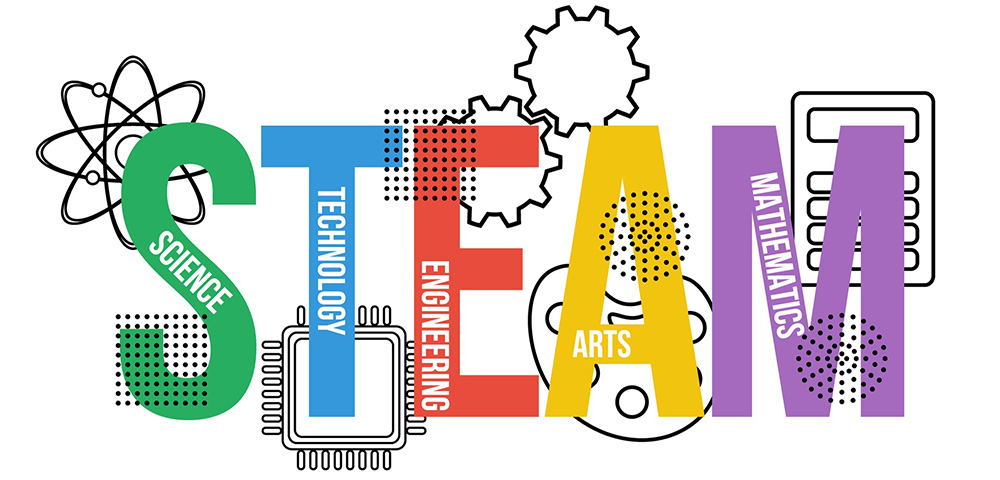
Instill a passion for discovery with activities that spark curiosity and establish learning skills.
I STEAM, You STEAM, We All STEAM
STEAM — an acronym for Science, Technology, Engineering, the Arts and Math — is a hot topic in the world of education. The STEAM approach to learning aims to develop creativity, critical thinking and complex problem-solving skills, and a passion for exploration and innovation. These skills are crucial to children’s future academic and career success, and it’s never too early for caregivers to start laying a foundation.
Preschoolers are eager to learn how the world works, and STEAM activities are a perfect fit for naturally curious children. Not only are STEAM activities fun for child and adult alike, but including them in the preschool curriculum or at home also provides a strong springboard into future learning. When today’s preschoolers grow up, there will be even more demand for professionals in STEAM career paths — likely including many we can’t even imagine today!
Library Programming to Support Preschool STEAM
STEAM activities pair well with literacy lessons. For example, after reading a story about bugs, take your child outside to observe insects in a garden. Count the number of insects you find, then use pipe cleaners and egg cartons to create a caterpillar or other insect.
Check out FCPL’s online Early Literacy guide for STEAM posters for toddlers and preschoolers. Each poster features a picture book recommendation along with ideas for STEAM activities to use with that story.
How to Introduce STEAM Concepts to Preschoolers
- Science: At its core, science simply means observing and asking questions. Science activities encourage a child’s natural curiosity and problem-solving abilities. For example, nature walks create opportunities for your child to see, touch and ask questions about the natural world. Ask your librarian for preschool nonfiction books on topics your child is interest in to extend the learning.
- Technology: YourDictionary.com defines technology as “science or knowledge put into practical use to solve problems or invent useful tools” — from basic tools like crayons and scissors, to more complex ones like hand lenses, microscopes and computers. Introduce your child to technology by allowing them to try out new tools such as a ruler or magnifying glass.
- Engineering: Preschoolers can test and explore engineering solutions through building and design activities. Keep blocks, LEGO® or recycled materials like empty boxes and toilet-tissue and paper towel rolls on hand to encourage spontaneous maker moments.
- Arts: Art activities including painting, coloring and paper crafts encourage creativity and allow preschoolers to illustrate concepts they are learning.
- Math: Besides developing basic number-sense skills such as counting and number recognition, preschoolers can learn to recognize patterns and shapes and build important organizational skills like sorting and graphing.

